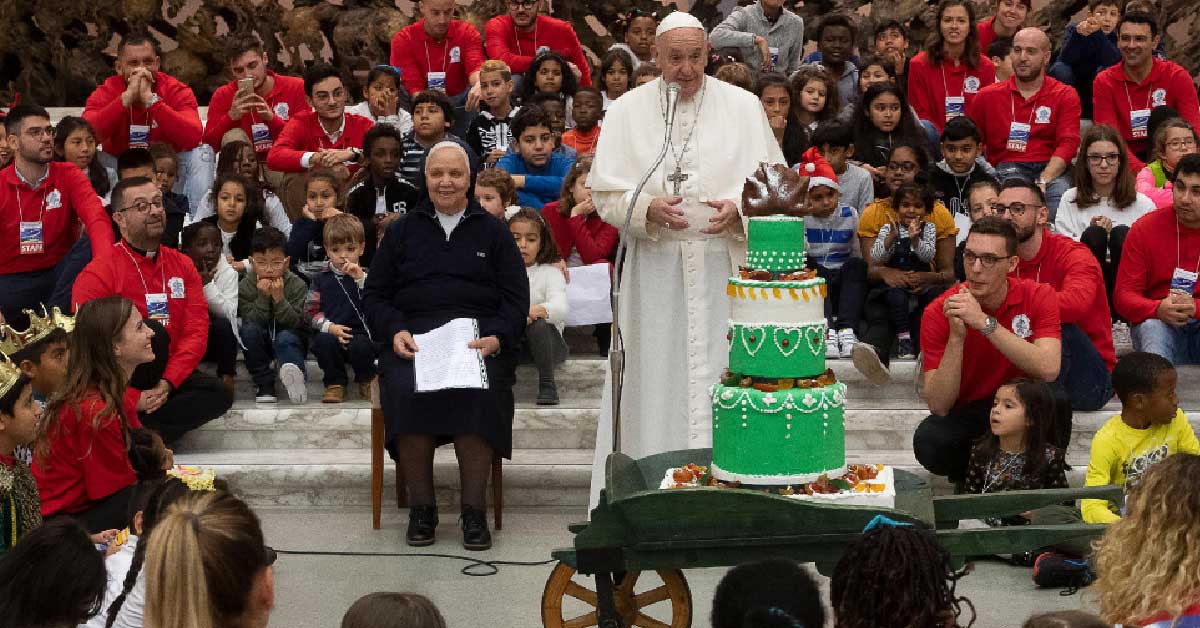
(Representational Image)
VATICAN CITY — As happened during Holy Week this year, liturgical celebrations in St. Peter’s Basilica over Christmas, such as midnight Mass celebrated by Pope Francis, will be limited to a select group of faithful and live-streamed to the faithful amid concerns over a surge of COVID-19 cases.
The Vatican quietly announced at the end of October that liturgical celebrations in St. Peter’s in the coming months would have very limited participation of the faithful, in compliance with foreseen protective measures, barring changes due to health risks.
The announcement, given at the end of a short, emailed statement to journalists about arrangements for papal Masses for the dead in early November, coincided with a return to the Pope’s weekly audiences being livestreamed from the library of the apostolic palace.
It also followed an Oct. 22 memorandum sent by the Secretariat of State to members of the diplomatic corps accredited to the Holy See, which stated that due to the serious international health situation caused by COVID-19 pandemic, the Christmas liturgical celebrations, presided by the Holy Father, will take place in the Vatican in private without the presence of members of the diplomatic corps.
The memorandum added that the liturgies would be transmitted live on the official site of Vatican News.
The news of the restrictions, coming almost two full months before Christmas, surprised some of the faithful in Rome who have been largely able to attend liturgies with moderate restrictions over the last six months.
No Official Changes in Rome
Although civil restrictions have tightened considerably in Rome in recent weeks (the city remains in what the government declares is a lower-risk yellow zone but masks must still be worn outdoors, restaurants and bars must shut at 6pm and a curfew is imposed from 10pm until 5am), no official changes to worship have been made since post-lockdown protocols came into effect on May 7.
Italy’s government, which has enforced a series of red zones (areas essentially under lockdown that include Lombardi, Campania and Tuscany), is currently weighing the possibility of enforcing further rules on the rest of the country. Christmas in Italy will be different but not canceled, government sources told the Italian news agency ANSA this week.
Italy’s bishops are therefore reportedly concerned that the government will impose a further suspension on public Masses, as happened during Holy Week. Already tested by the restrictions, economically and otherwise, the bishops had been hoping the government would relax some of the May 7 protocols, for example, by increasing the maximum number of people who can take part in Mass, which is currently limited to 200 people, but that now seems unlikely.
The Church has already reintroduced choirs and no longer mandates ministers to wear disposable gloves when distributing Holy Communion, or that priests wear them for baptismal anointing's or the anointing of the sick.
The bishops also reportedly want to avoid the sort of clash it had with the government in April when they complained of an arbitrary exclusion of religious ceremonies as the lockdown was lifted. Their appeal was followed a few days later by comments from Pope Francis who called for prudence and obedience to the rules.
On Nov. 4, the Holy Father urged the faithful to respect authorities’ rules on the COVID crisis as the Vatican decided that his weekly general audience should return to being held in an empty Apostolic Library and streamed over the internet.
“Sadly, we have had to return to this audience in the library, and that is to defend ourselves from COVID contagion,” Francis said. “This teaches us, also, that we must be very attentive to the rules of the authorities, whether they be political or health, to defend ourselves from this pandemic.”
